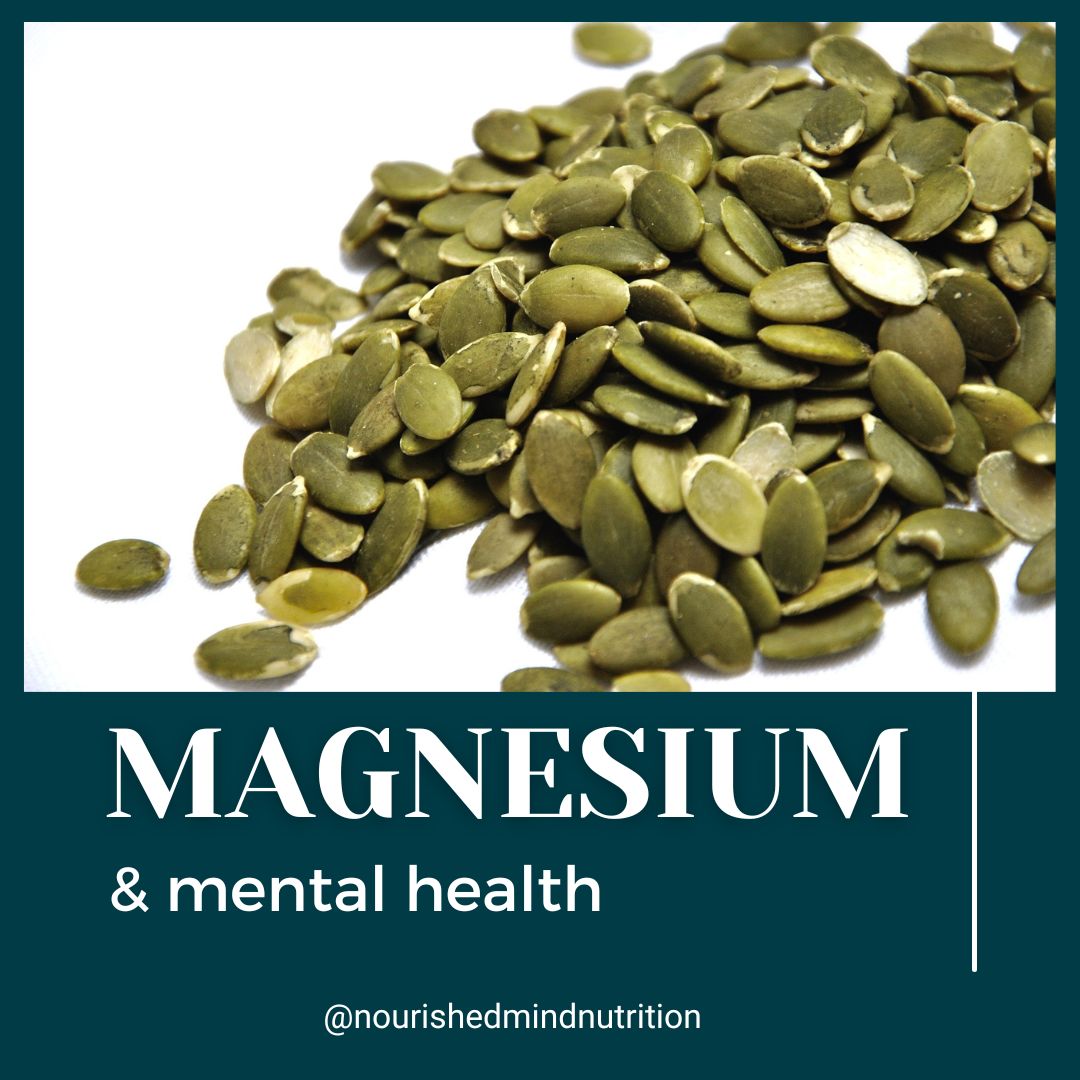
Magnesium is one of my "all-star" nutrients for both gut health and mental health. Today, let's talk all things magnesium - why I love it, and when and how I recommend my patients use it!
What does magnesium do? Magnesium is an essential mineral, and it is important for a bunch of different systems and functions in the body:
What causes magnesium deficiency? Magnesium deficiency or insufficiency is unfortunately pretty common, considering all the important roles it plays in the body. Low magnesium levels can be caused by:
How is magnesium involved in anxiety and depression? Magnesium is intricately involved in mental health. Low magnesium levels are linked to increased inflammation, circadian rhythm dysfunction (i.e., sleep issues), and poor tolerance to stress. We have discussed in previous posts the connection between inflammation and depression. Poor sleep is often a factor in worsening mental health, as well. Plus, magnesium is involved in balancing neurotransmitter function to promote CALM. How can I get enough magnesium? There are lots of dietary sources of magnesium, but they are mostly whole foods - which unfortunately are under-consumed by most Americans! Green leafy vegetables, whole grains, fish, nuts, and seeds are all great sources. When foods are processed and refined, magnesium content is sometimes lost, and Americans tend to eat a lot of processed and refined foods, which may partially explain why rates of deficiency and insufficiency are so high. We get varied levels of magnesium from drinking water, depending on the source (mineral water and well water tend to be higher, but exact levels vary). The Recommended Daily Allowance (RDA) for magnesium is 310-320 mg/day for women and 400-420 mg/day for men. (For reference, one of the highest-magnesium foods is pumpkin seeds, which contain 168 mg magnesium per ounce. Most other nuts, seeds, whole grains, and beans contain more like 30-60 mg per servings.) If you're concerned you might not be getting enough, or you want to see whether additional magnesium might help some of your symptoms, magnesium supplements are also generally quite safe and effective. (But, it is always a good idea to check with your doctor or dietitian before you start a new supplement.) Your healthcare provider can check the magnesium levels in your blood, but those levels might not be very useful. The amount of magnesium in your red blood cells (RBC Magnesium) might be a better test. But even then, the level of magnesium in your brain is what's most important for mental health. Low magnesium in the brain is associated with depression and neuroinflammation. How might magnesium supplements help? Increasing magnesium intake and/or supplementing with magnesium might help with:
What type of magnesium supplement is best? There are lots of different options for magnesium supplementation. Depending on what symptoms you're looking to treat with magnesium, the optimal choice of supplement will vary. If you are frequently constipated, the standard formulations of magnesium will probably help with this (such as magnesium sulfate, oxide, citrate, or chloride). It's a good idea to take the supplement at night to give it time to work - and that's the best time to take it for its sleep benefits, anyway. On the other hand, magnesium glycinate and magnesium taurinate have both been used with good results in people with depression and anxiety, and seem to have fewer unwanted gastrointestinal side effects (for those who don't struggle with constipation at baseline). A newer supplement option, magnesium L-threonate, actually crosses the blood-brain barrier and boosts magnesium levels in the brain, which might make it an ideal choice to take advantage of the neurological and mental health benefits of magnesium.
If you’re interested in learning more about how to improve your mental health and gut health through the power of nutrition, contact us or schedule a virtual telehealth appointment with me!
Note: This post may contain affiliate links. I only recommend products I love! Erica Golden, RDN, LD, IFNCPRegistered Dietitian Nutritionist with a passion for helping people improve their mental health and gut health using integrative and holistic therapies.
0 Comments
|
AuthorErica Golden, RDN Archives
March 2024
Categories |
 RSS Feed
RSS Feed
